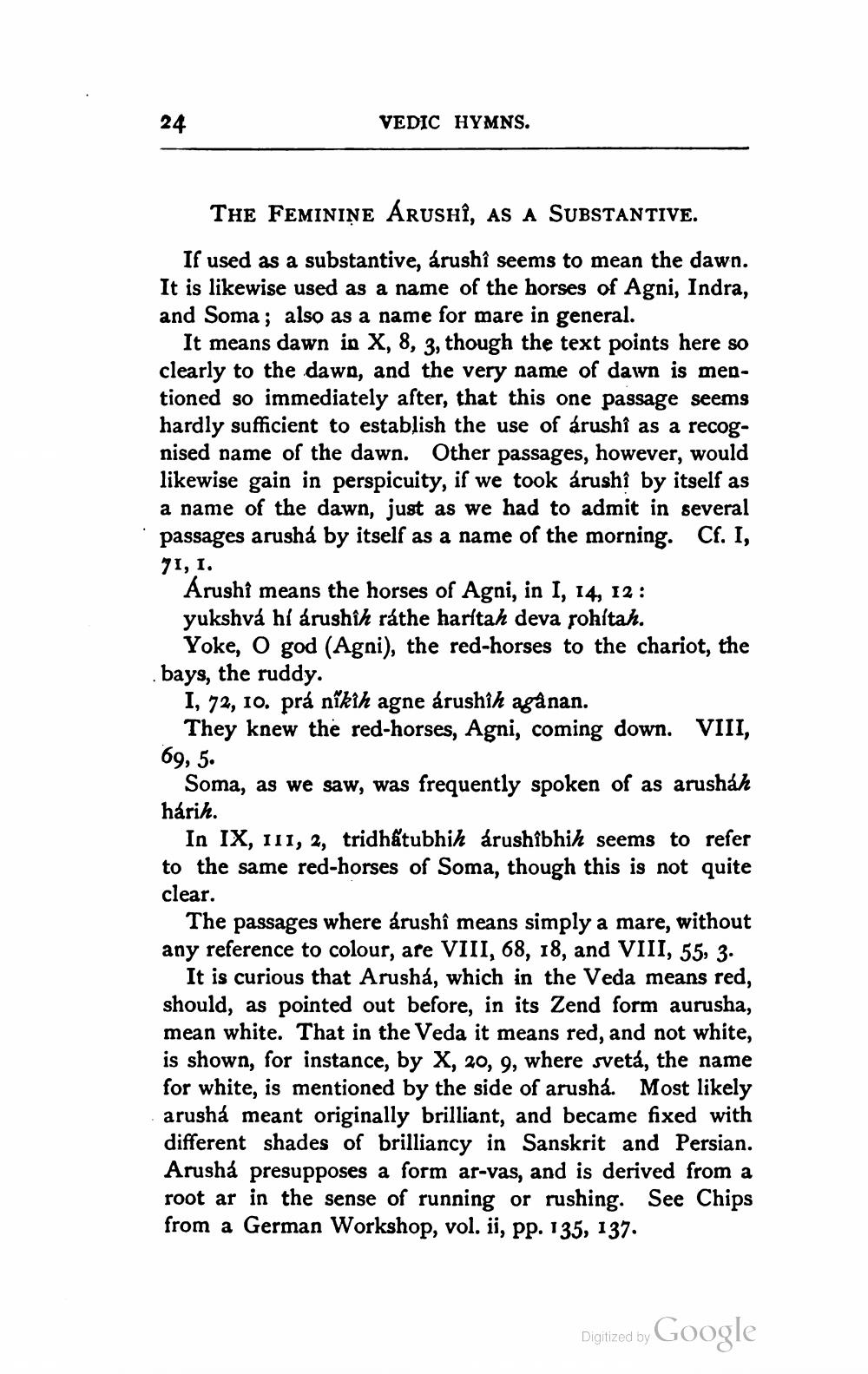________________
VEDIC HYMNS.
THE FEMINIŅE ARUSHỈ, AS A SUBSTANTIVE. If used as a substantive, árushî seems to mean the dawn. It is likewise used as a name of the horses of Agni, Indra, and Soma ; also as a name for mare in general.
It means dawn in X, 8, 3, though the text points here so clearly to the dawn, and the very name of dawn is mentioned so immediately after, that this one passage seems hardly sufficient to establish the use of árushi as a recognised name of the dawn. Other passages, however, would likewise gain in perspicuity, if we took árushỉ by itself as a name of the dawn, just as we had to admit in several passages arusha by itself as a name of the morning. Cf. I, 71,1.
Arushỉ means the horses of Agni, in I, 14, 12: yukshvá hí árushîh ráthe harstah deva sohltah.
Yoke, O god (Agni), the red-horses to the chariot, the bays, the ruddy.
I, 72, 10. pra nîkih agne árushih aganan.
They knew the red-horses, Agni, coming down. VIII, 69, 5.
Soma, as we saw, was frequently spoken of as arushah hárih.
In IX, 111, 2, tridhấtubhih arushibhih seems to refer to the same red-horses of Soma, though this is not quite clear.
The passages where árushî means simply a mare, without any reference to colour, are VIII, 68, 18, and VIII, 55, 3.
It is curious that Arusha, which in the Veda means red, should, as pointed out before, in its Zend form aurusha, mean white. That in the Veda it means red, and not white, is shown, for instance, by X, 20, 9, where sveta, the name for white, is mentioned by the side of arusha. Most likely arusha meant originally brilliant, and became fixed with different shades of brilliancy in Sanskrit and Persian. Arusha presupposes a form ar-vas, and is derived from a root ar in the sense of running or rushing. See Chips from a German Workshop, vol. ii, pp. 135, 137.
Digized by Google




